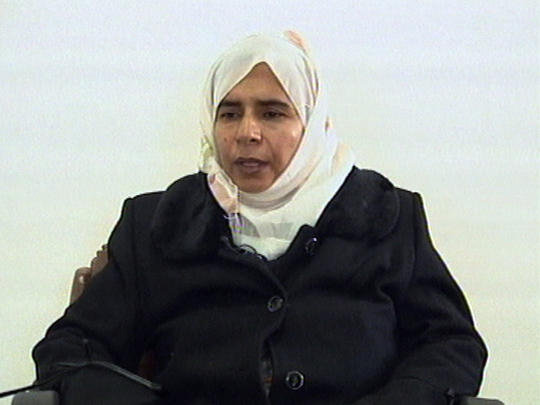
Tokyo: Japan has vowed to work with Jordan to secure the release of a Japanese journalist held by Daesh militants after the killing last week of another Japanese captive, but it reiterated that it would not give in to terrorism.
The hostage crisis has become a test for Prime Minister Shinzo Abe, who took power in 2012 pledging to bolster Japan’s global security role.
Abe on Sunday condemned the killing of Japanese citizen Haruna Yukawa as “outrageous” and called for the release of veteran correspondent Kenji Goto, captured by Daesh militants in Syria.
“We would like to work together with the Jordanian government to secure the release of Goto,” Yasuhide Nakayama, state minister for foreign affairs, told reporters in Jordan late on Monday.
Nakayama was sent to Jordan last week to deal with the crisis.
The militants have dropped a ransom demand. They now say they will free Goto in exchange for the release of Sajida Al Rishawi, a convicted Iraqi suicide-bomber, from prison in Jordan.
Working together
The militants captured a Jordanian pilot after his plane crashed during US-led coalition bombing in eastern Syria in December and Nakayama said he hoped Japan and Jordan could work together for his release too.
“The release of this pilot as soon as possible is also an issue for us Japanese,” Nakayama said.
“Both our nations have to work together to ensure that both the pilot and the Japanese hostage return to their respective homes with smiles on their faces.” Media has reported that the militants were demanding the release of another death-row convict, raising speculation about multiple swaps involving Goto and the Jordanian pilot.
Jordan’s King Abdullah was quoted as telling a Jordanian newspaper that the case of the pilot, First Lieutenant Muath Al Kasaesbeh, “tops the country’s priority”.
Abe told parliament Japan would do its utmost to save Goto.
Japanese hostages, Kenji Goto, left, and Haruna Yukawa
“The horrible act of terrorism by [Daesh] is outrageous and we resolutely condemn it,” Abe said, referring to the militants.
“The situation is extremely severe but we’ll do the utmost to have Kenji Goto released as soon as possible ... We won’t give in to terrorism.” Two members of Jordan’s parliament told Kyodo news agency on Monday that Jordan may be willing to release Al Rishawi in exchange for Goto and Kasaesbeh.
A group of Arab ambassadors in Tokyo, including envoys from Jordan, Saudi Arabia and Syria condemned Yukawa’s murder and demanded Goto’s release saying Japan had stood on “countless occasions beside Islamic and Arab countries”.
Who is Sajida Al Rishawi?
She is a convicted Iraqi would be suicide-bomber whose device failed to detonate in a string of otherwise deadly terror attacks at Jordanian hotels in 2005.
Al-Rishawi is referred to as an "imprisoned sister" of the terrorist group in a message purportedly posted online by a known Daesh supporter.
The message proposes a swap of Al Rishawi for Japanese hostage Kenji Goto. In the video, Goto is seen holding a photo of what appears to be beheaded compatriot Haruna Yukawa.
The online posts, which could not ne verified independently, appeared four days after an Daesh video demanded that the Japanese government pay $200 million within 72 hours for the hostages' release.
In the latest recording, the voice of a person claiming to be Goto is heard in English blaming Japanese Prime Minister Shinzo Abe for Yukawa's death. Forgoing the money, the voice then issues a new Daesh the release of Al-Rishawi.
"They are just demanding the release of their imprisoned sister Sajida Al Rishawi," the voice said.












